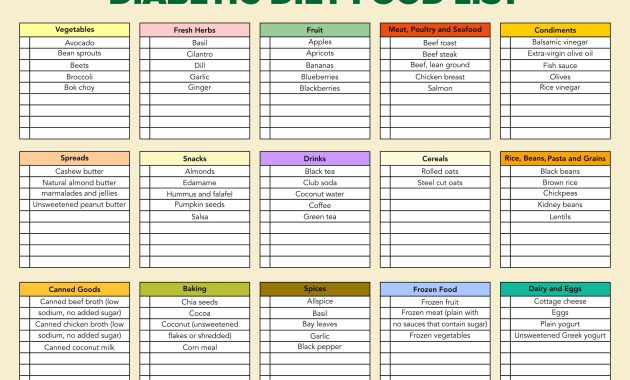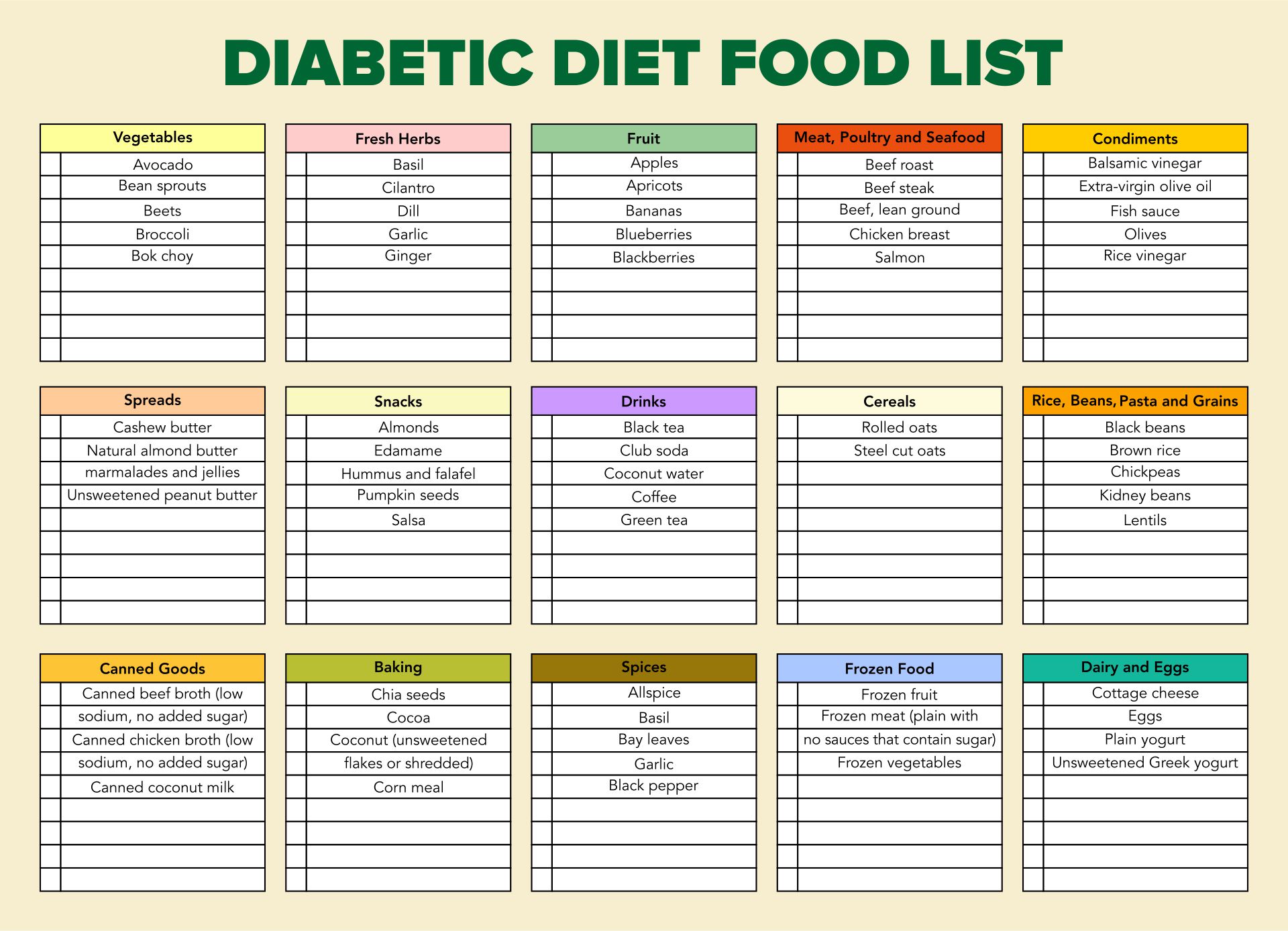
How to Ease Diabetes: Delicious Foods Already in Your Kitchen
The diagnosis of diabetes can feel overwhelming. It can feel like you are suddenly navigating a complex health landscape. The good news? Managing diabetes doesn’t always require drastic dietary overhauls. In fact, you can often find the tools to ease diabetes right in your kitchen. This article explores how to ease diabetes with readily available foods.
This piece aims to provide practical, evidence-based advice. It will cover a variety of foods that can support blood sugar management. We’ll also discuss how incorporating these foods into your diet can significantly impact your overall health.
Understanding Diabetes and Dietary Needs
Diabetes is a metabolic disorder. It is characterized by high blood sugar levels. This occurs because the body either doesn’t produce enough insulin or can’t effectively use the insulin it produces. Insulin is a hormone. It regulates the movement of glucose from the blood into cells for energy.
There are two main types of diabetes: Type 1 and Type 2. Type 1 diabetes is an autoimmune condition. The body attacks and destroys insulin-producing cells in the pancreas. Type 2 diabetes is more common. It often develops over time. It is often linked to lifestyle factors, such as diet and lack of exercise. Both types necessitate careful management of blood sugar levels.
Diet plays a crucial role in managing diabetes. The right foods can help to stabilize blood sugar levels. They can also improve insulin sensitivity. A well-planned diet can reduce the risk of diabetes complications. These complications include heart disease, kidney disease, and nerve damage.
The Power of Whole Foods
Focusing on whole, unprocessed foods is key to managing diabetes. These foods provide essential nutrients. They also offer fiber. Fiber helps to slow down the absorption of sugar into the bloodstream. This prevents rapid spikes in blood sugar.
Here are some whole foods you likely already have. They can significantly contribute to managing your diabetes:
- Non-Starchy Vegetables: These are low in carbohydrates. They are rich in fiber, vitamins, and minerals.
- Lean Proteins: Protein helps to slow down carbohydrate digestion. It also promotes satiety.
- Healthy Fats: These are essential for overall health. They can also help improve insulin sensitivity.
Foods to Embrace to Ease Diabetes
Let’s delve into specific foods. These are often in your pantry or refrigerator. They can help you ease diabetes:
Leafy Green Vegetables
Leafy greens are a nutritional powerhouse. They are incredibly low in calories and carbohydrates. They are packed with vitamins, minerals, and antioxidants. These are beneficial for overall health. They can also help to ease diabetes.
Examples include spinach, kale, lettuce, and collard greens. These can be added to salads, smoothies, or stir-fries.
Cruciferous Vegetables
Broccoli, cauliflower, Brussels sprouts, and cabbage belong to this group. They are rich in fiber. They also contain compounds that may improve insulin sensitivity. These vegetables should be a staple. They can help you ease diabetes.
Berries
Berries like blueberries, strawberries, and raspberries are rich in antioxidants. They have a lower glycemic index than many other fruits. They are also packed with fiber. They can help to regulate blood sugar levels. They can also help you ease diabetes.
Nuts and Seeds
Almonds, walnuts, chia seeds, and flax seeds are excellent sources of healthy fats, fiber, and protein. These are beneficial for blood sugar control. They can also promote satiety. They can also help you ease diabetes.
Legumes
Lentils, beans, and chickpeas are high in fiber and protein. They have a low glycemic index. They are a great way to add nutrients to your diet. They can also help you ease diabetes.
Whole Grains (in moderation)
Choose whole grains over refined grains. Opt for options like quinoa, brown rice, and oats. They provide more fiber and nutrients. They also have a lower impact on blood sugar. Consume these in moderation to ease diabetes.
Lean Proteins
Chicken, fish, and tofu are essential for overall health. They help to slow down the absorption of carbohydrates. They also promote satiety. They are beneficial for blood sugar control. They can also help you ease diabetes.
Healthy Fats
Avocados, olive oil, and fatty fish (like salmon) are rich in healthy fats. They improve insulin sensitivity. They also promote satiety. They are beneficial for overall health. They can also help you ease diabetes.
Foods to Limit or Avoid
While some foods can help you ease diabetes, others can worsen the condition. It’s important to limit or avoid these foods:
- Sugary Drinks: Soda, juice, and sweetened beverages can cause rapid spikes in blood sugar.
- Processed Foods: These are often high in carbohydrates, unhealthy fats, and sodium.
- Refined Grains: White bread, white rice, and pastries have a high glycemic index.
- Excessive Alcohol: Alcohol can affect blood sugar levels. It can also interfere with diabetes medications.
Meal Planning and Portion Control
Planning meals and controlling portion sizes are key to managing diabetes. Here are some tips:
- Plan Meals in Advance: This helps you make healthier food choices.
- Use a Plate Method: Fill half your plate with non-starchy vegetables. Fill a quarter with lean protein. Fill the remaining quarter with whole grains or starchy vegetables.
- Read Food Labels: Pay attention to serving sizes and carbohydrate content.
- Eat Regular Meals: Avoid skipping meals. This can lead to blood sugar fluctuations.
Lifestyle Changes to Support Diabetes Management
Diet is crucial. However, other lifestyle changes can further improve diabetes management:
- Regular Exercise: Physical activity helps to improve insulin sensitivity.
- Weight Management: Losing even a small amount of weight can significantly improve blood sugar control.
- Stress Management: Stress can raise blood sugar levels. Practice relaxation techniques.
- Adequate Sleep: Aim for 7-9 hours of sleep per night. Sleep deprivation can affect blood sugar control.
- Regular Monitoring: Check blood sugar levels regularly. This helps you understand how foods and lifestyle choices affect your body.
The Importance of Consulting Healthcare Professionals
This article provides general information. It should not replace professional medical advice. If you have diabetes, consult your doctor or a registered dietitian. They can create a personalized meal plan. They can also provide guidance on medications and lifestyle changes.
Your healthcare team can help you manage your diabetes effectively. They can also monitor your progress. They can also adjust your treatment plan as needed.
Conclusion: Taking Control to Ease Diabetes
Managing diabetes is a journey. It requires commitment and informed choices. By focusing on whole foods, you can make significant progress. You can often find these foods readily available. They can help you ease diabetes.
Remember to consult with your healthcare team. They can provide the support and guidance you need. They can also help you achieve your health goals. With the right approach, you can live a healthy and fulfilling life with diabetes.
[See also: Related Article Titles]

